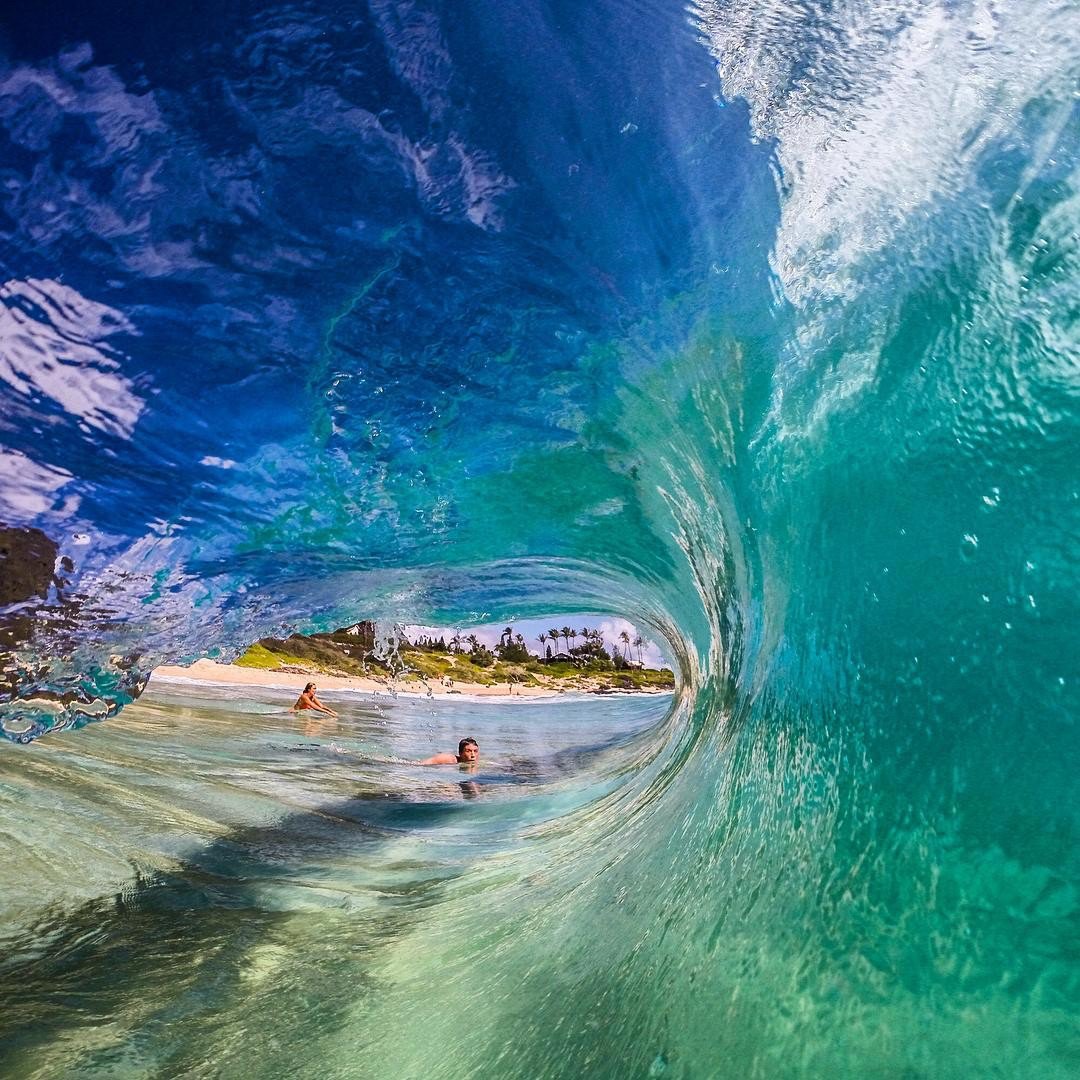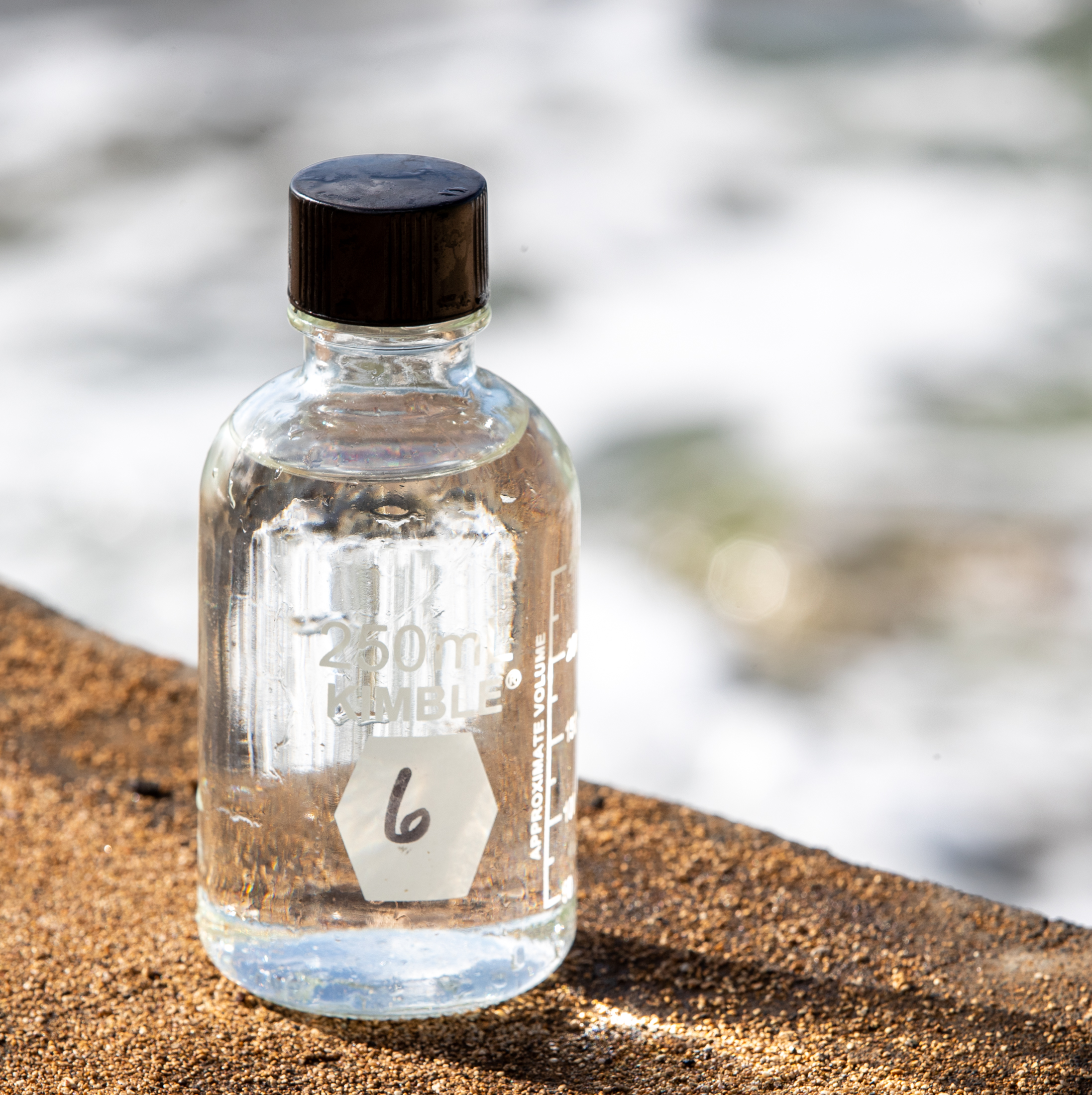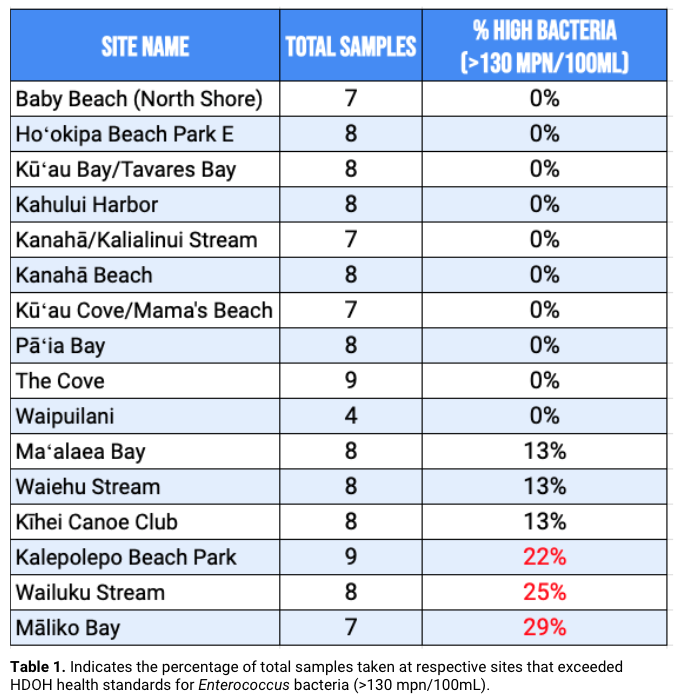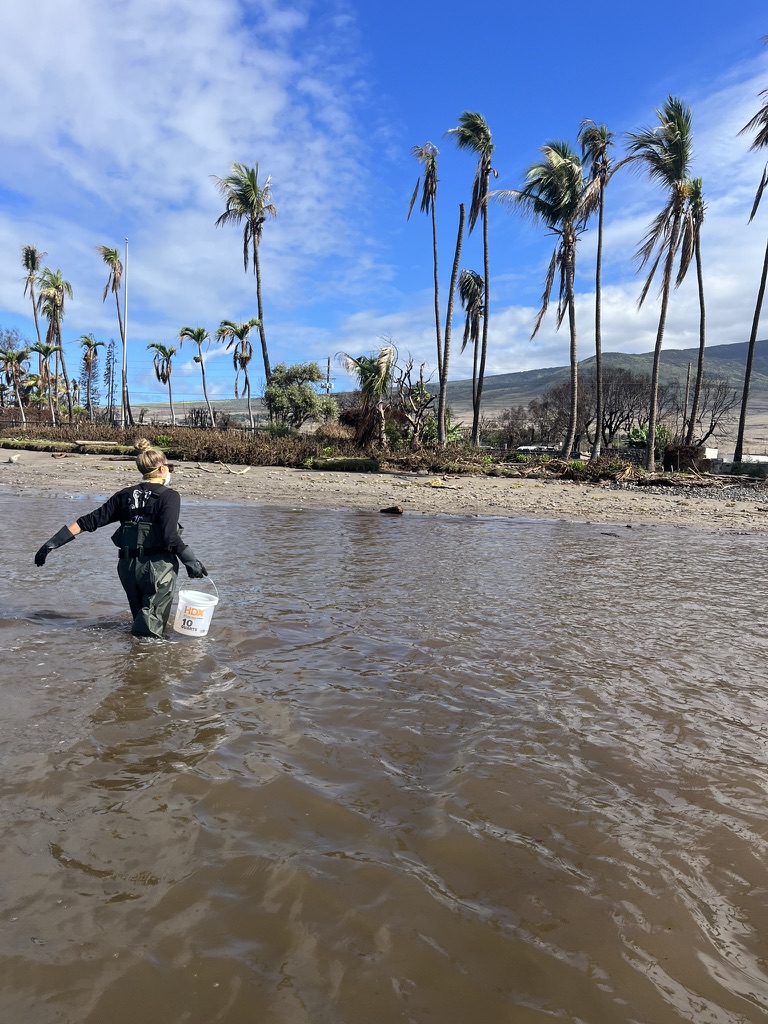
2023 Maui Water Quality Report
Surfrider Foundation believes that all people should have access to water quality data. Our BWTF program empowers the local community to make informed decisions about where it is – or is not safe to swim.
2023 Overview
In 2023, trained BWTF volunteers sampled 16 sites monthly on the North and South shores. Seven sites were added in Lāhainā after the fire and four sites were sampled in Hāna. Overall, 154 samples were collected. Samples were processed at the Pāʻia Youth & Cultural Center. 2023 BWTF results are consistent with water quality trends from previous years. As in previous years, samples from Wailuku Stream and Māliko Bay have exceed the state health standard more frequently than the other sites tested. Both of these sites are located at the mouth of streams or rivers. Water quality conditions at these sites can likely be attributed to land-based runoff from upland areas that is carried by freshwater streams to the ocean. This is similar to BWTF from across Hawaiʻi where sites located at stream mouths, beaches with freshwater outlets, or in bays without much circulation are typically characterized by higher bacteria levels than at ocean sites with higher circulation
Of the 16 sites regularly tested in 2023, three exceeded health standards over 20% of the year.


What did we find?
Of the 16 sites regularly tested in 2023, three sites (Kalepolepo Beach Park, Wailuku Stream, and Māliko Bay) had over 20% of their samples exceed state health standards. All of these sites showed similarly high bacteria levels in 2022.
Post-Fire Sampling: Lāhainā
The Maui Chapter has been particularly focused on understanding how post-fire toxins from the devastating Lāhainā fire may impact ocean goers. This has been especially challenging given issues around access to the burned areas and a general lack of understanding of how these toxins react or change in the ocean environment. The Chapter was able to collect water quality samples along the Lāhainā coastline in early December 2023 and January 2024. These samples are currently being analyzed for the presence of heavy metals. Since September 2023, the Chapter has also partnered with the Hui O Ka Wai Ola to collect enterococcus samples from the Lāhainā area. Read More >

Stop Sewage Pollution
As part of its recently launched STOP Sewage Pollution program, Surfrider Foundation encourages homeowners to improve water quality by following these 8 simple steps:
- Convert your cesspool
- Share your knowledge about the impacts of cesspools on water quality
- Inspect and pump your septic tanks and cesspools regularly.
- Don’t use septic additives.
- Only flush the three P’s (pee, poop and toilet paper)
- Don’t pour cooking grease or oils down the drain.
- Conserve water inside your home.
- Soak up the rain and reduce runoff by directing roof downspouts into a rain barrel or vegetated area.
Community members are encouraged to check water quality results posted online before they head to the beach at bwtf.surfrider.org/explore/44. Current and historic data are available.
